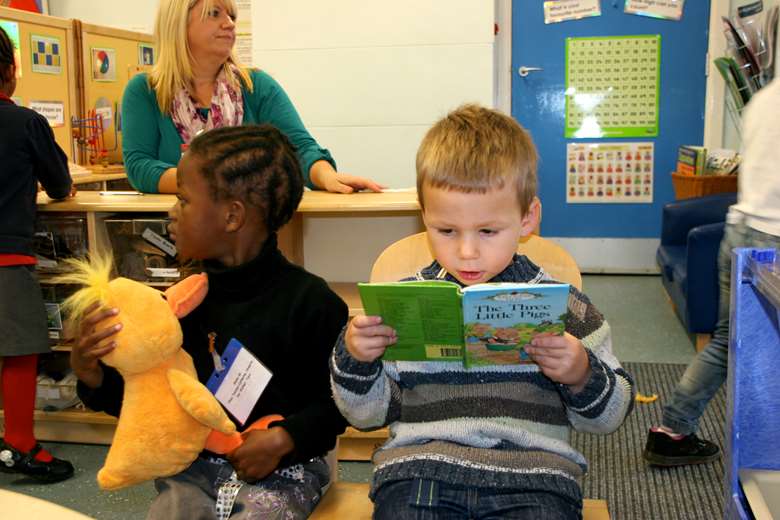Nurseries paying higher wages perform better, study finds
Jess Brown
Wednesday, February 10, 2016
Early years settings that pay staff more money generally offer better-quality provision, a study has concluded.

Researchers found that paying nursery workers an extra £1 an hour can make the difference between Ofsted rating provision as "good" or "outstanding".
The Family and Childcare Trust (Fact) report, titled In for a Pound, reveals that nurseries that have been graded as outstanding pay staff an average of £8.37 per hour, compared with £7.44 for those rated good.
Nurseries graded as "requires improvement" or "inadequate" pay an average of £6.92 an hour.
The findings of the report, which analysed the hourly pay rates of 900 job advertisements of private and voluntary sector nurseries, comes as government prepares to extend the provision of free childcare for working parents from the current 15 hours a week to 30 hours a week.
Early years organisations have previously raised concerns that the hourly funding rates paid to providers by government, as announced in last year's autumn statement, will fall short of the true cost of extended provision.
The link between pay and quality is present across England, the Fact report found. It is most pronounced in London, where there is a £2.58 difference between pay in outstanding and inadequate settings. In the north west of England, the difference is £2 an hour.
“If free early education is to fulfil its objectives of improving the life chances of the most disadvantaged children, the government must address quality,” the report states.
The report also found that, in all parts of England, the mean hourly pay rates in settings with the lowest Ofsted grades were below the living wage, which will be £7.20 from April this year, indicating they will shortly have to pay staff more.
Fact has called for Ofsted to conduct research into the relationship between the income of early years staff and the quality of settings.
“Our research indicates that a relatively small increase in staff wages – less than £1 per hour – may turn good childcare into provision that is outstanding, thus boosting children’s outcomes,” the report states.
Julia Margo, chief executive at Fact, said the charity is calling for the Department for Education to address low pay.
“Longer term, we want to see a fully graduate-led workforce with a minimum professional rate of pay, bringing early years professionals in line with their school colleagues.
"Without this, low pay will continue to discourage highly skilled people from joining the profession and will affect the quality of care received by our children.”
Purnima Tanuku, chief executive of the National Day Nurseries Association, chief said the limiting factor on pay is chronic underfunding of free nursery places.
"When the government extends the number of free childcare hours, starting from September this year in some areas, it will become the main purchaser of childcare nationally," she said.
“It is therefore vital that nurseries and their staff get a fair deal. The government's promised funding review is under way and it must result in a higher hourly rate that supports a properly paid workforce."
Neil Leitch, chief executive of the Pre-school Learning Alliance, said many settings are unable to increase wages.
"Many providers would love to be able to pay their staff a higher wage; however, a continued lack of adequate funding [from government] simply does not allow for them to do so.
"As such, objective evidence that demonstrates a direct link between wages and Ofsted outcomes is clearly something that the DfE needs to take into consideration when developing future early years policy."
An Ofsted spokespmann said: “There is overwhelming evidence that quality early education makes a difference to a young child’s life chances.
“As we said in our early years annual report, because the early years are a time when children are learning rapidly, how well they are taught is very important. Ofsted too has emphasised the importance of good qualifications for early years practitioners."




